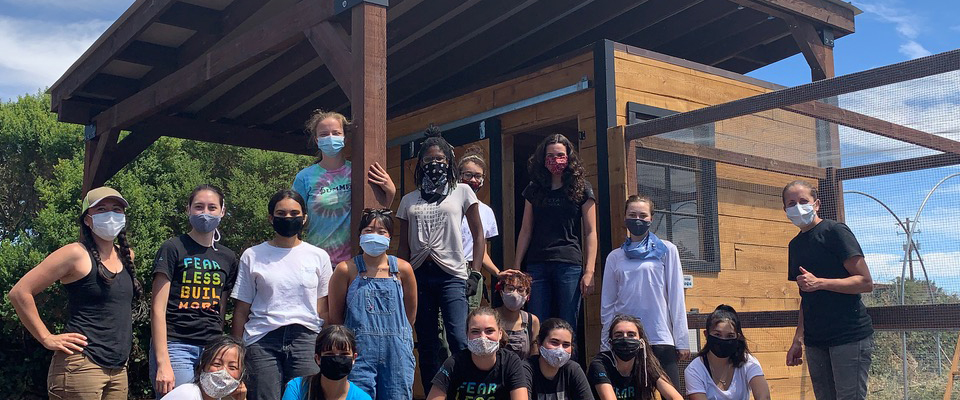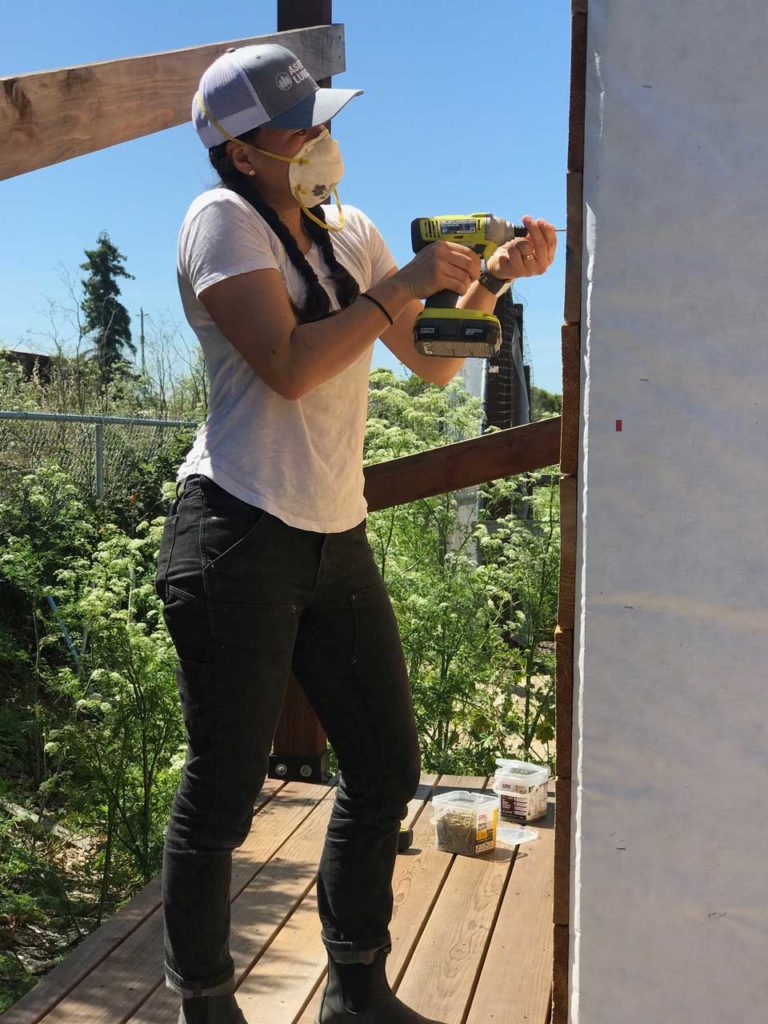It’s late September, and Emily Pilloton ’03 is at Girls Garage, a nonprofit she founded in 2013 in Berkeley. Girls Garage recently reopened for small groups of girls eager to get back to the space and get building again.

Her first foray into design was a high school service trip to Belize that opened her eyes to what design could be. “We spent the whole summer working alongside local masons and carpenters, and we built an entire town park,” Pilloton recalls. “It was really an experience that changed the way I thought about space making and also about myself—that I could have a role in the shaping of the world.” It was the first time she saw the immediate impact of her work, and it stuck with her throughout her studies at UC Berkeley’s College of Environmental Design. The then dean, Mike Martin, had told her that Cal would not train her just to be an architect. “Architecture is a visual language for seeing the world. I remember feeling like that’s what I want,” she reflects.
“I want them all to leave with the physical experience of having done something that was scary, of having done things that the world generally says are not for them.”
Fast forward to 2009, when she got an email from someone in Bertie County, North Carolina. Dr. Chip Zullinger was an elementary school superintendent who wanted Pilloton to design and build structures for struggling schools. “This guy was a renegade. Really, I could tell. This guy is gonna get fired. He was that kind of leader that just came in to mix things up, make things better. This is who I want to be working with.”
However, ultimately, she felt unsettled about why she was there. “It started to feel a little bit disingenuous. No one likes a design imperialist.” She proposed an idea to Dr. Zullinger. If he wanted to change things for the students, creativity and design needed to be in the classroom. He agreed, and Pilloton developed a curriculum, became certified, and was teaching the next school year.

This summer, Pilloton and the girls of Girls Garage completed a project they started late last year to construct a 500-square-foot chicken pavilion at Urban Tilth’s North Richmond Farm. Most of these girls do not have a comparable program at their schools, and whether or not they go on to become builders or pursue careers in STEM, Pilloton wants them to be proud of their work.
“I want them all to leave with the physical experience of having done something that was scary, of having done things that the world generally says are not for them.”




















